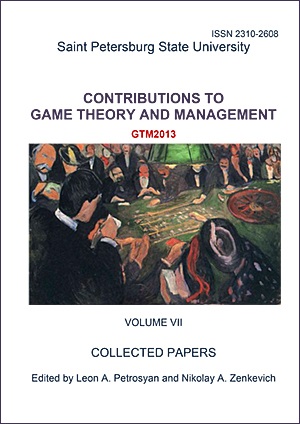On the Inverse Problem and the Coalitional Rationality for Binomial Semivalues of Cooperative TU Games
Abstract
In an earlier work (Dragan, 1991), we introduced the Inverse Problem for the Shapley Values and Weighted Shapley Values of cooperative transferable utilities games (TU-games). A more recent work (Dragan, 2004) is solving the Inverse Problem for Semivalues, a more general class of values of TU games. The Binomial Semivalues have been introduced recently (Puerte, 2000), and they are particular Semivalues, including among other values the Banzhaf Value. The Inverse problem for Binomial Semivalues was considered in another paper (Dragan, 2013). As these are, in general, not efficient values, the main tools in evaluating the fairness of such solutions are the Power Game and the coalitional rationality, as introduced in the earlier joint work (Dragan/Martinez-Legaz, 2001). In the present paper, we are looking for the existence of games belonging to the Inverse Set, and for which the a priori given Binomial Semivalue is coalitional rational, that is belongs to the Core of the Power Game. It is shown that there are games in the Inverse Set for which the Binomial Semivalue is coalitional rational, and also games for which it is not coalitional rational. An example is illustrating the procedure of finding games in the Inverse Set belonging to both classes of games just mentioned.
Keywords:
Inverse Problem, Inverse Set, Semivalues, Binomial Semivalues, Power Game, Coalitional rationality
Downloads
References
Downloads
Published
How to Cite
Issue
Section
License
Articles of "Contributions to Game Theory and Management" are open access distributed under the terms of the License Agreement with Saint Petersburg State University, which permits to the authors unrestricted distribution and self-archiving free of charge.




